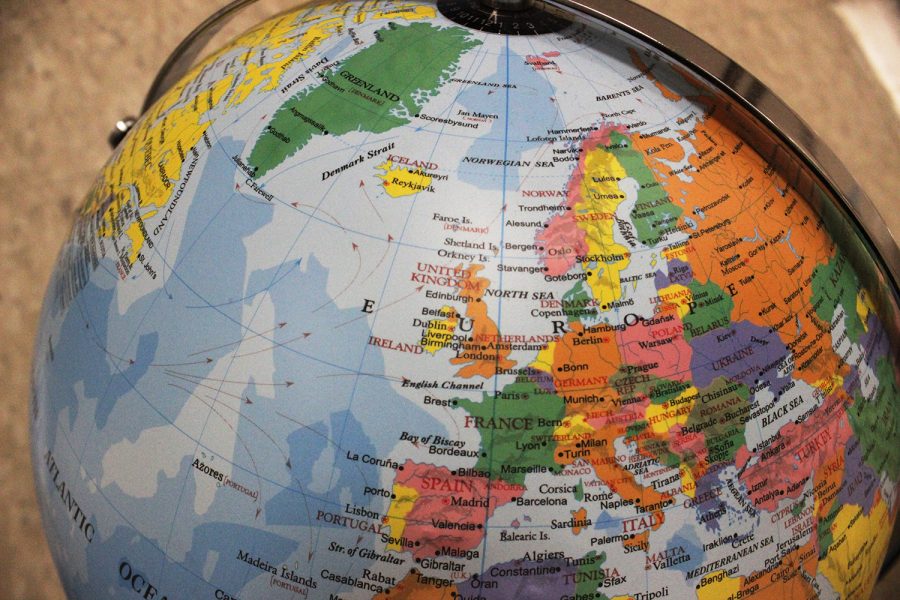Brexit’s effect on Ireland
January 8, 2021
Great Britain’s parliament voted in favor of leaving the European Union at the start of this year. When Britain is done transitioning from the EU, it will leave Ireland alone from mainland Europe. Ireland is a member of the EU, and with Northern Ireland being a part of Britain, some members of Ireland’s Parliament suspect a toilsome future for Ireland.
The Irish democratic-socialist political party, Sinn Féin, is the largest political party in Ireland. Sinn Féin party member, Aengus Ó Snodaigh, said he has concerns of the effects of Britain’s leave. When Brexit is over, economic trade changes will hurt Ireland.
“Until Brexit happens it is difficult to quantify the full cost of Brexit on Ireland” Snodaigh said via email. “Much of it will be borne by manufacturers, suppliers, transport organisations and retail stores, with higher cost involved due to new customs charges or forms, delays getting to markets. Most Irish exporters travel across Britain to the EU markets, most commentators predict huge delays at key ports between Britain and France for instance. But there other costs, including on tourism, on cross border education initiatives funded by the EU at present. There may be benefits economically, but the negatives will far outweigh any positive benefit which Brexit may bring.”
Britain may have inadvertently influenced other nations to leave the EU, Ireland included.
“Technically any country could follow England’s lead in leaving the EU, but given the complexities and the economy upheaval which Britain has suffered preparing for Brexit, would discourage, I believe, any other country leaving the EU, especially in the current political atmosphere,” Snodaigh said. “While there is a healthy debate about Ireland’s future in Europe, as we have become more inbedded in the EU, the less are the voices looking to leave, but the debate has concentrated on ensuring it becomes more democratic and receptive to the needs of small nations on the margins of Europe.”
Some political parties will benefit from Brexit and others will suffer from the change.
“The biggest losers from Brexits will be the DUP, (the Democratic Unionist Party of Northern Ireland), because the negative effects on Britain’s economy will mean that the English Exchequer, (the accounting process for all the governments money from taxes), will be less inclined to invest additional monies into the North,” Snodaigh said. “Also much of their support comes from farming communities and as Britain, and therefore the North, won’t get CAP, (a system of agricultural payments), or benefit from cross-border EU Peace Funds, they will look enviously at the Southern State and its access to EU money, markets and supports. They will then realise that their economic future and logically their political future would be better served in a singular economy and political structure on the island of Ireland.”
With COVID-19 and Brexit, Ireland’s future lies in the hands of Ireland’s Parliament.
“The Pandemic and Brexit or major challenges for Ireland and the effects on various parts of our society will have to be met head-on,” Snodaigh said. “I believe we can do that and that we can also start to prepare for the reunification of Ireland with a referendum within five years. In doing that we will reimagine and then reshape our society and become more self-assured Ireland showing within few short years the benefits of a singular economy with the support of a huge Irish diaspora to draw on.”
The Rebublican and conservative party Fianna Fáil, has struggled by identifying themselves as Irish or British party. Party member, Éamon Ó Cuív, said the history of tensions between Northern Ireland and Ireland are deep rooted.
“The DUP perceived that the Nationalists north and south were trying to put a border in the Irish sea” Cuív said via email. “The agreement eventually arrived at is a good deal for Northern Ireland but the way it was arrived at was not good.”
The Irish Republican Army, IRA, have been operating in Ireland and parts of Northern Ireland since the 1960’s, their main goal is to unit all of Ireland.
“They were a paramilitary organisation which sought to bring about Irish unity by violent means” Cuív said. “Thankfully most Republicans now believe politics is a better way forward than violence.”
With the uncertainty of Brexit, IRA members and supporters could rally together.
“I hope Brexit does not increase IRA support and do not think it will.”
Background: The most recent conflict between Ireland and Northern Ireland was The Troubles, from 1968 to 1998. It started by The Northern Ireland Civil Rights Association and the Royal Ulster Constabulary (RUC). The Irish Civil Rights Association wanted to end discimination of Catholics by local Protestants and the RUC. The “low-level war” death toll is 3,600 people. The Troubles was ended by a ceasefire and later The Good Friday Agreement signed April 12, 1998. Source: Britannica.com







Madalyn Tuning • Apr 21, 2021 at 10:21 am
You’re a great writer, Brycen!
Aunt Ellisa Naumann • Jan 11, 2021 at 10:36 pm
Very good news article with a lot of information about a complicated topic.
Alyssa C Osborne • Jan 8, 2021 at 3:29 pm
Great informative piece!
Tricia Osborne • Jan 8, 2021 at 3:21 pm
Such an informative article! We need to hear more international news, especially in this “global economy”. Great job, Brycen!